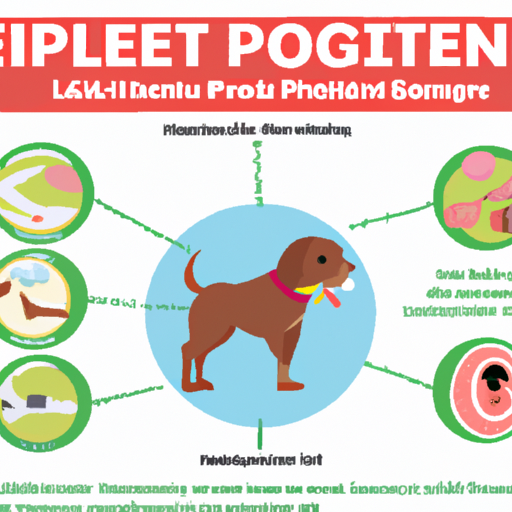Understanding PLE
Protein-losing enteropathy (PLE) is a term you might have encountered if you’re caring for a dog with complex health issues. In second person terms, it’s when your dog can’t absorb proteins from their diet, or when they lose proteins through their gut. This condition can lead to serious health complications.
The Causes of PLE
The causes of PLE in dogs can be quite diverse. They include:
- Inflammatory bowel disease
- Lymphangiectasia (dilation of the lymph vessels)
- Cancer
- Intestinal infections
Each of these causes can lead to a different set of complications, so it’s important to understand which is affecting your dog.
Symptoms of PLE in Dogs
Look out for these common symptoms in your dog:
- Loss of appetite
- Weight loss
- Diarrhea
- Vomiting
- Edema (swelling caused by excess fluid in the body’s tissues)
If you notice any of these, it’s time to consult a vet.
Diagnosis and Treatment
The diagnosis of PLE in dogs is typically done via a series of tests, including:
| Test | Purpose |
|---|---|
| Biochemical profile | To assess the overall health of your dog |
| Fecal analysis | To check for parasitic infections |
| Biopsy | To identify the underlying cause of PLE |
Once diagnosed, the treatment for PLE typically involves managing the underlying cause. This could be through diet changes, medication, or even surgery in severe cases.
Managing PLE at Home
If your dog has been diagnosed with PLE, there are several things you can do at home to help them feel better:
- Provide a high-protein diet
- Ensure they stay hydrated
- Monitor their weight regularly
- Consult with your vet about appropriate medications
Remember, you’re not alone. There is a community of caregivers who have experience managing PLE in their dogs.
FAQ
Q: Is PLE fatal in dogs?
A: If left untreated, PLE can be fatal. However, with proper management and treatment, many dogs can live normal and healthy lives.
Q: What breeds are at risk for PLE?
A: While any breed can develop PLE, it’s more common in Soft-coated Wheaten Terriers, Norwegian Lundehunds, and Basenjis.
Q: How can I prevent PLE in my dog?
A: There’s no surefire way to prevent PLE, but a healthy diet, regular exercise, and regular checkups with your vet can help maintain your dog’s overall health.



